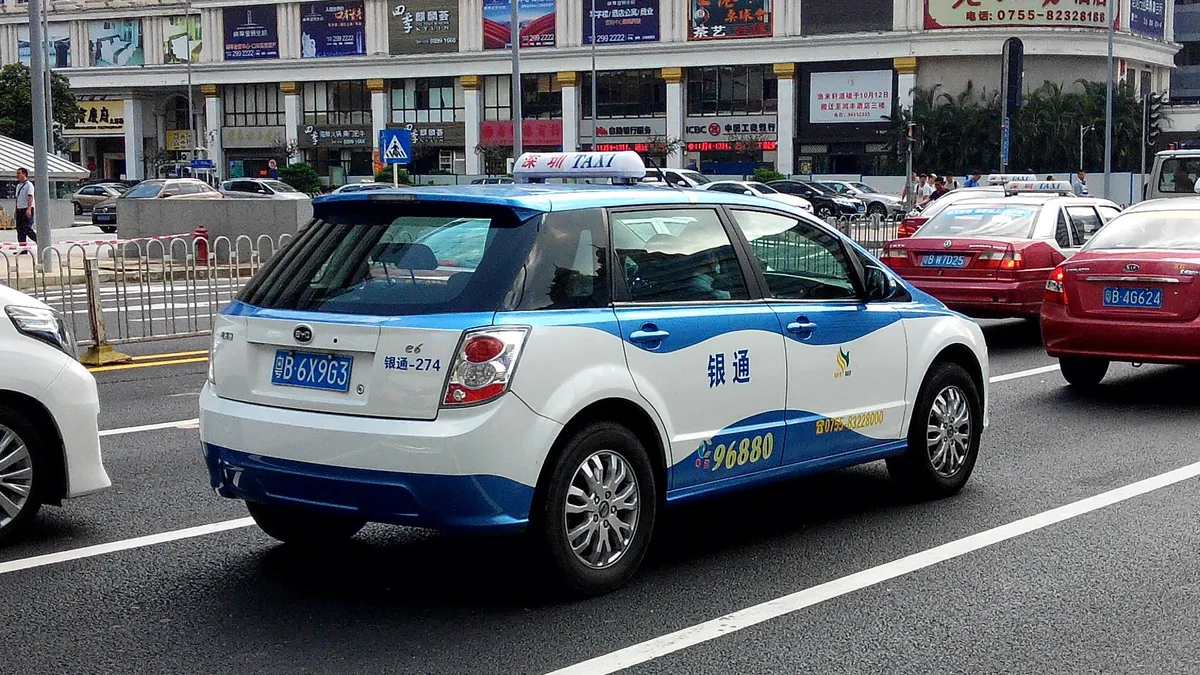Dive Brief:
- The city of Shenzhen, China announced nearly 95% of the city’s taxi cabs run on electric batteries, according to a report in TechCrunch, citing the city's Transportation Commission website. More than 21,000 of the city’s taxis are battery-powered, with another 1,350 waiting to be put into operation once they are charged.
- Shenzhen, which hosts the headquarters of electric car company BYD, was one of China’s 13 electric vehicles pilot cities and has been promoting electric cars since 2010. The city also boasts an electric bus fleet.
- The use of the battery-powered taxis is estimated to cut 856,000 metric tons of carbon emissions per year.
Dive Insight:
The fleet overhaul is the result of a full-on effort from the Chinese government to put more electric cars on city streets to reduce air pollution. The campaign also had the benefit of helping domestic battery companies such as BYD, which has started to expand abroad to back electric bus and car fleets in the United Kingdom (however, BYD recently lost a contract to supply Albuquerque, NM electric buses over safety concerns).
Overhauling a city’s entire transportation sector to cleaner electric cars is an uphill climb, but cities and states have targeted government fleets and taxi companies as a starting point. Cities including Columbus, OH and New York have purchased EVs to integrate into existing taxi fleets. A fleet of electric taxis can ease deployment because they can charge overnight, often from a central location, and can help support the installation of other chargers throughout a city.
However, some cities have encountered resistance from drivers. In Washington, DC, for example, drivers have complained the Nissan Leafs in the fleet take too long to charge and sometimes require going well out of the way to find a publicly accessible charger. The city offered a series of grants to offset the cost of purchasing electric vehicles, but drivers said they ended up losing income because of the charging difficulties. Pepco, the city’s electric utility, announced plans this fall to build more chargers.











